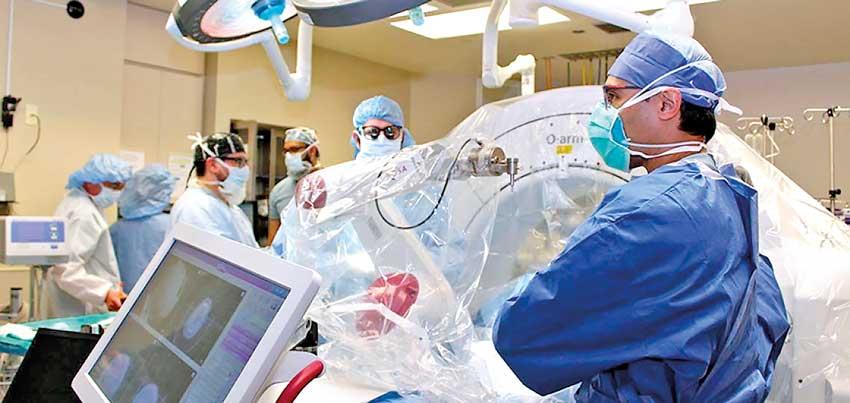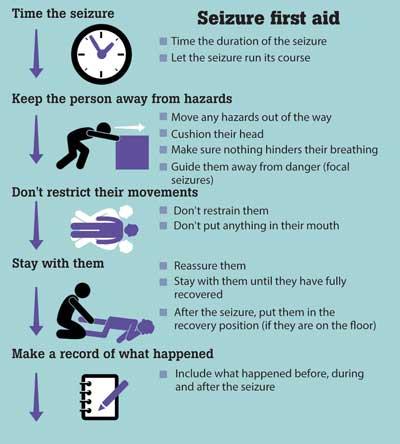18 Feb 2022 - {{hitsCtrl.values.hits}}

Epilepsy surgeries are performed free-of-charge at the Colombo National Hospital
 Epilepsy is a neurological disorder characterised by abnormal brain activity which results in seizures or periods of unusual behaviour, abnormal jerking movements and, in some cases, loss of consciousness. Epilepsy has no age, ethnicity, or race restrictions, and can affect both males and females of all ages, ethnic backgrounds, and races. In Sri Lanka epilepsy affects 57.7 out of every 10,000 children aged 0-16, with the prevalence increasing with age. It is more common in males.
Epilepsy is a neurological disorder characterised by abnormal brain activity which results in seizures or periods of unusual behaviour, abnormal jerking movements and, in some cases, loss of consciousness. Epilepsy has no age, ethnicity, or race restrictions, and can affect both males and females of all ages, ethnic backgrounds, and races. In Sri Lanka epilepsy affects 57.7 out of every 10,000 children aged 0-16, with the prevalence increasing with age. It is more common in males.
Symptoms
Signs of seizures and symptoms may include:
Symptoms do vary depending on the type of seizure, but in most cases, a person with epilepsy will have the same type of seizure each time, so symptoms will be similar from episode to episode. Seizures are generally classified as either focal or generalised focusing on where and how the abnormal brain activity begins.
Diagnosis
To diagnose the condition, the doctor will examine the patient’s symptoms and medical history. The doctor may order a number of tests to diagnose epilepsy and determine the cause of seizures. The evaluation may include:
Treatment and Medication 
Seizures can generally be managed with medication such as antiepileptic drugs(AEDs). The medications given will depend on the type of seizures and other factors such as age. If medications fail to provide adequate control over seizures (drug resistant epilepsy), doctors may propose brain surgery.
Surgery
If medications fail to provide adequate control over seizures (drug resistant epilepsy), doctors may propose brain surgery. If the patient takes medications that do work effectively, but have side effects which cannot be tolerated surgery may be the best option for them to live a more comfortable life. Furthermore, if long-term medication is required, there is a risk of developing cerebral atrophy along with the fact that it can become a financial burden, henceforth surgery can be opted. It has been estimated that around 30 %of all epilepsy patients are resistant to drug treatment and will end up with surgery. Surgeries are performed free-of-charge at the Colombo National Hospital.
Preparing for Surgery and the Process
Preparing for epileptic procedure involves discussions between neurologists, neurosurgeons, neurophysiologists, psychologists, anaesthetists the patient and their family. Through discussion, they will be able to conclude which procedure is best for the patient. There are 3 main kinds of surgeries one with seizures could undergo;
1. Resection-This involves the removal of micro abnormal areas of the brain which may not have been seen in conventional CT or MRI scans but can be clearly seen in modern high resolution MRI and EEG and PET scans.
2. Stimulation-This surgery involves the placement of electrodes into the brain to stimulate different areas of the brain so that it controls seizures, such as vagus nerve stimulation or deep brain stimulation.
3. Disconnection- If the area of the brain responsible for seizures is too vital or large to remove, the surgeon can perform a disconnection which involves interrupting the nerve pathway by making cuts in the brain. Seizures are prevented from spreading to other parts of the brain as a result of this.
With the development of new anesthetic techniques, the use of high-tech instruments such as the operating microscope, and particularly the neuro navigation system, brain surgery has become smoother, with fewer complications and reduced duration of hospital stay. Postoperative complications are also kept to a minimum.Recent research has shown that 81% of people with severe epilepsy have gone completely or almost seizure free six months after surgery.After 10 years , 72% were completely or almost seizure free.
Post-operative Care
Medical management for post-epilepsy patients depend on the patient’s medical, cognitive, social and emotional status. Families should be warned that existing psycho behavioral complications may not improve, even if the seizures are managed well and should have realistic expectations. During the postoperative period, maintaining therapeutic AED levels is crucial.
Misconceptions in epilepsy
1.Myth: You will swallow your tongue during a seizure.
Fact: This is the most common misconception linked with seizures, and it’s impossible to swallow your tongue during a seizure.
2.Myth: If someone is having a seizure, you should put something in their mouth to prevent them from choking or restrain them.
Fact: You should never put anything inside a person who is experiencing a seizure or try to restrain them.
3.Myth: Epilepsy is contagious.
Fact: No, you cannot catch epilepsy from another person.
5.Myth: During a seizure, the person is in pain.
Fact: During a seizure, the person is unconscious and does not experience any pain, but some may experience muscle aches and can be tired after a prolonged seizure.
6.Myth: People with epilepsy are disabled and not able to work.
Fact: Actually, most people with epilepsy are not disabled and are capable of having rewarding careers. Each individual is different.
8.Myth: You can’t die from epilepsy.
Fact: Epilepsy is a very serious condition and individuals can die from seizures.
(The writer is a Consultant
Neurosurgeon at the National Hospital)
20 Dec 2024 6 hours ago
20 Dec 2024 7 hours ago
20 Dec 2024 8 hours ago
20 Dec 2024 9 hours ago
20 Dec 2024 20 Dec 2024